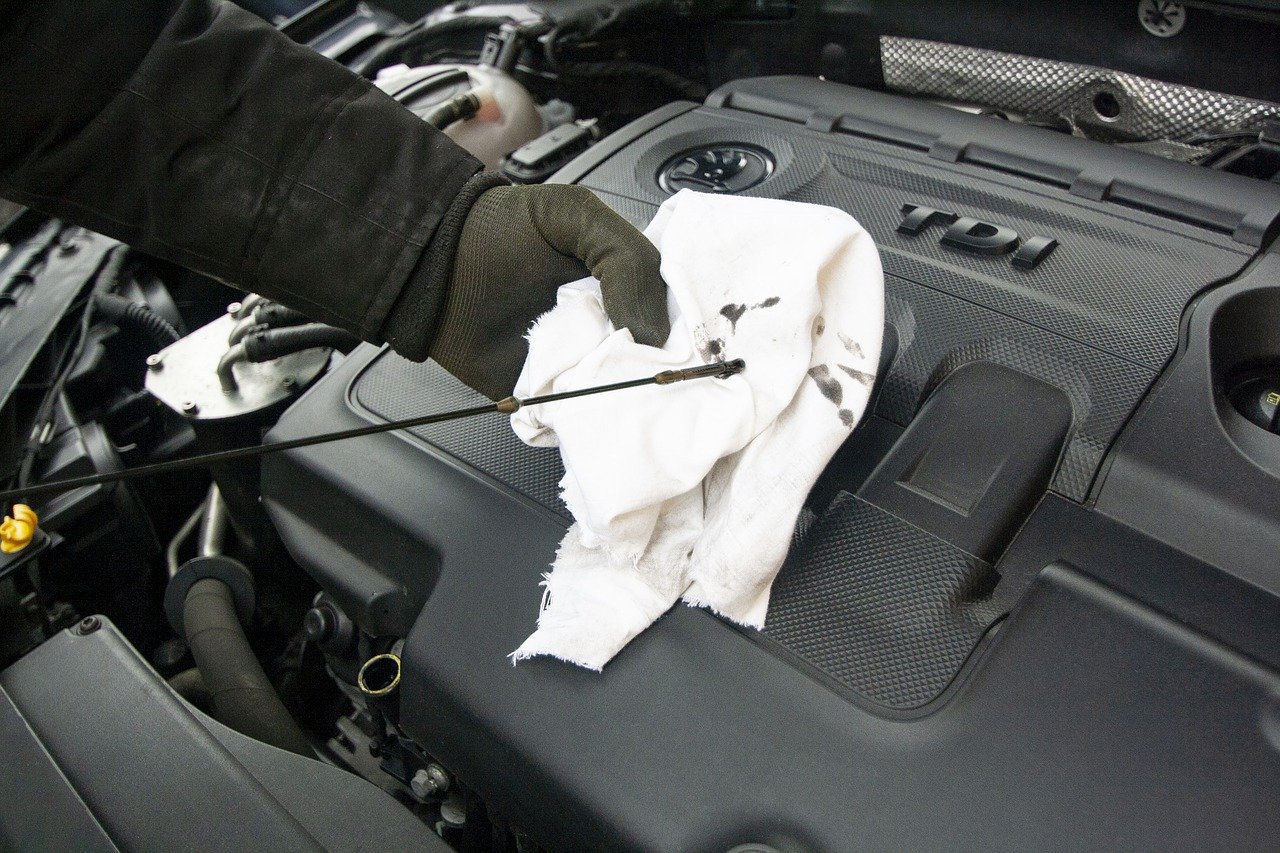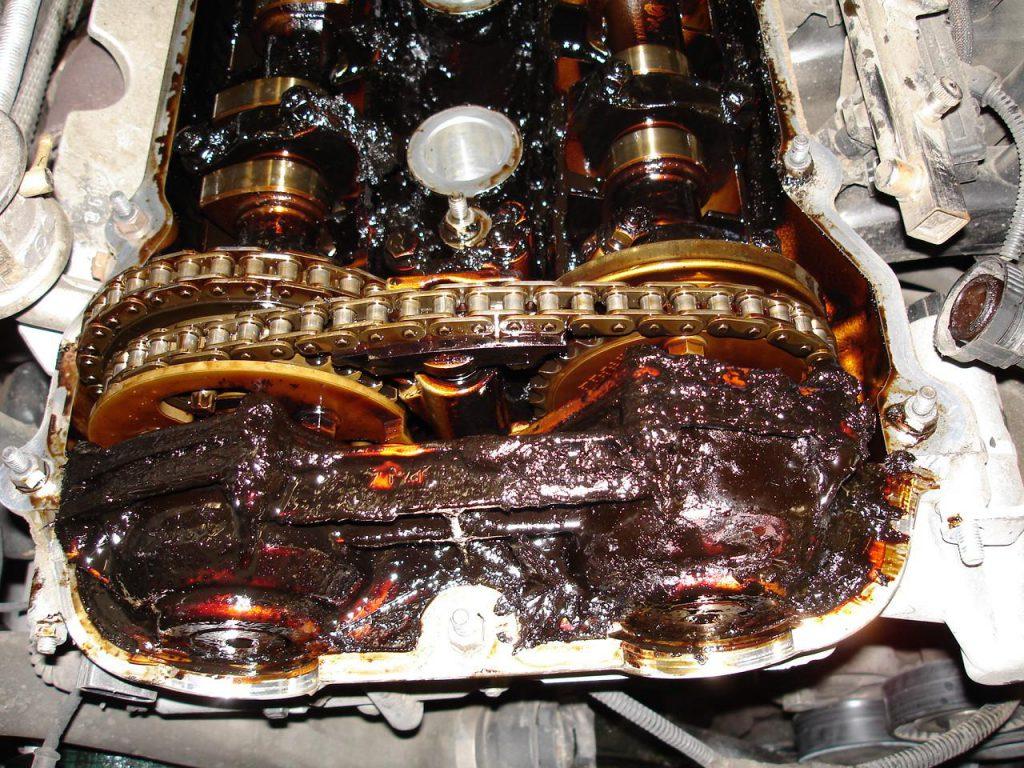Driving a car without oil can cause irreversible damage to the engine. Without oil, the moving parts in the engine grind together and create friction, eventually causing the engine to overheat, wear down, and ultimately need to be replaced.
It is important to regularly check and maintain the oil level in your car to prevent such damage from occurring. Neglecting this basic maintenance task can lead to costly repairs and even render the car completely unusable. We will explore the consequences of not putting oil in your engine and how to avoid such a scenario.
Immediate Consequences Of Running Without Oil
Running an engine without oil can lead to serious consequences. Without oil, the moving parts in the engine lack lubrication, resulting in increased friction. This can cause the engine to overheat as the parts grind together. Over time, the lack of oil can lead to wear and tear, potentially causing irreversible damage to the engine. It is crucial to regularly check and maintain proper oil levels to ensure the smooth operation and longevity of your engine.

Credit: m.youtube.com
Long-term Damage To Your Engine
If you don’t put oil in your engine, it can lead to catastrophic engine failure due to the absence of lubrication. Without oil, the moving parts in the engine will experience increased friction, leading to wear and tear. Over time, this can cause permanent damage to the engine, eventually resulting in complete failure. The absence of oil also means that the engine is left without its essential coolant, raising the risk of overheating. It’s crucial to regularly check and maintain the oil levels in your engine to avoid these serious consequences.
Symptoms Of Operating With Low Or No Oil
Running your engine with low or no oil can have serious consequences. Without proper lubrication, the moving parts of your engine can grind together, causing friction and overheating. This can lead to irreversible damage and the need for engine replacement.
There are several symptoms that may indicate low or no oil in your engine:
- Oil Pressure Warning Light: This warning light on your dashboard may illuminate, indicating low oil pressure.
- Strange Noises: You may hear strange grinding or knocking noises coming from your engine, which can be a sign of inadequate lubrication.
- Decreased Performance: Your engine may experience decreased performance and power due to the increased friction caused by lack of oil.
- Burning Smell: A burning oil scent may be present, indicating that the engine is overheating and parts are grinding together.
To avoid these issues, it is crucial to regularly check your oil levels and ensure they are at the recommended level. If you notice any of these symptoms, it is important to address the issue promptly and have your engine checked by a professional mechanic.
Understanding The Role Of Oil In Your Engine
Understanding the role of oil in your engine is crucial to maintaining its performance and longevity. Oil serves three main functions in an engine: lubrication, cooling, and cleaning.
Lubrication: Oil forms a protective layer between moving parts, reducing friction and wear. Without proper lubrication, the moving parts of the engine can grind together, causing damage and overheating.
Cooling: Oil helps to dissipate heat generated by the engine. It absorbs heat from the moving parts and carries it away, preventing overheating. Without oil, the engine can overheat, leading to potential damage.
Cleaning: Oil helps to clean the engine by trapping dirt, debris, and contaminants. Over time, these particles can build up and cause blockages or damage. Without regular oil changes, the engine may become dirty and less efficient.
Overall, neglecting to put oil in your engine can result in irreversible damage. The lack of lubrication, cooling, and cleaning properties of oil can lead to increased friction, overheating, and wear, ultimately requiring expensive repairs or engine replacement.
Preventative Measures To Avoid Oil Depletion
|
Regular checks and timely oil changes are crucial preventative measures to avoid oil depletion in your engine. Driving a car without oil can cause irreversible damage, as an engine without oil lacks lubrication, leading to increased friction and overheating. This can wear down the moving parts and ultimately require an expensive engine replacement. To avoid such a scenario, it’s important to regularly check the oil level and change the oil on time as per the manufacturer’s recommendations. Symptoms of low oil in a car include decreased performance, strange grinding or knocking sounds, and a burning oil scent. If you forget to put oil in your car, it may run for a short while, but it’s essential to check the oil level regularly to prevent any damage to the engine. |
How To Check Oil Levels
Checking the oil levels in your engine is crucial for maintaining its performance. If you forget to put oil in your engine, it can lead to zero lubrication, causing the moving parts to grind together and create friction. This can result in overheating, wear, and irreversible damage to the engine.
Always ensure the oil levels are adequate to protect your car’s engine.
To check the oil levels in your car, you need to use the dipstick. First, make sure your car is on level ground and the engine is turned off. Locate the dipstick in your engine and pull it out. Wipe it clean with a cloth or paper towel, then reinsert it fully. Pull it out again and check the oil level. The dipstick will have markings indicating whether the oil level is low or high. If the level is low, add oil to the engine. Understanding the readings on the dipstick is crucial in determining if your engine has enough oil or not. Regularly checking and maintaining oil levels in your engine can prevent irreversible damage and prolong the life of your car.What To Do If You’ve Run Without Oil
Running your engine without oil can have serious consequences for your car. Without proper lubrication, the moving parts of the engine can grind together, causing friction and overheating. Over time, this can lead to irreversible damage and the need for engine replacement. If you have accidentally run your car without oil, it is important to take immediate action. First, stop driving the car and turn off the engine to prevent further damage. Next, check the oil level and add the necessary amount if it is low. If the oil level is extremely low or empty, it is advisable to have your car towed to a mechanic for a professional assessment and necessary repairs. Remember, regular oil changes and maintenance are crucial for the health and longevity of your engine.

Credit: www.jdpower.com
The Economic And Environmental Cost Of Neglect
Without oil, your engine is left without its all-important coolant and lubricant, leading to an increased likelihood of friction, overheating, wear and tear, and ultimately, catastrophic engine damage. This neglect can result in a variety of negative consequences, both economically and environmentally.
One of the immediate effects of not putting oil in your engine is increased fuel consumption. Without proper lubrication, the moving parts of the engine create more friction, causing the engine to work harder and use more fuel. This not only leads to unnecessary expenses in terms of fuel costs but also contributes to higher carbon emissions, further impacting the environment.
Ignoring the importance of oil in your engine can lead to serious consequences. The economic cost includes increased fuel consumption and the need for expensive engine repairs or even a complete engine replacement. On the environmental side, it contributes to higher carbon emissions and pollution. Regularly checking and changing your engine oil is a simple yet crucial step in maintaining the health and longevity of your engine, saving you both money and the environment in the long run.

Credit: carfromjapan.com
Frequently Asked Questions
How Long Can An Engine Run Without Oil Before Damage?
Driving an engine without oil can cause irreversible damage. Without lubrication, moving parts create friction, leading to overheating and wear. This can ultimately result in the need for engine replacement. It’s crucial to maintain proper oil levels to protect your engine from damage.
What Happens If Engine Oil Is Empty?
Driving a car with no engine oil can cause irreversible damage. Without oil, there is no lubrication for the moving parts, leading to friction and overheating. If this continues, the engine may wear down and eventually need to be replaced.
It is important to regularly check the oil level in your car to prevent such damage.
What Are The Symptoms Of Low Oil In A Car?
Symptoms of low oil in a car include oil pressure warning light, decreased performance, strange noises, and burning oil scent.
What Happens If I Forgot To Put Oil In My Car?
If you forget to put oil in your car, the engine will have zero lubrication, causing the moving parts to grind together and create friction. This can lead to irreversible damage, overheating, and the need for engine replacement. Always keep a check on the oil level in your car to protect the engine.
Conclusion
Neglecting to put oil in your engine can lead to irreversible damage. Without proper lubrication, the moving parts will generate friction, causing the engine to overheat and wear down. It’s crucial to regularly check and maintain the oil levels to protect your car’s engine and ensure its longevity.
